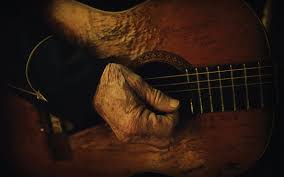
The Life of Willie Nelson’s Guitar
I remember the first time I heard a really good guitar. Its notes resonated differently from other guitars. It had a voice of its own that spoke beyond the notes of the player. The funny thing is, it was one of the ugliest guitars I had ever seen. It was a dark wood with scratches all over its face. I wondered if the owner had used it as a flower pot or something. Hearing that great guitar caused me to pay attention to something interesting about guitars. The best-sounding guitars tend to be plain and worn. Guitars are meant to be used; old warn guitars are often the most valuable, because the wood ages and begins to project a tone that only comes with time. Most of the elegant guitars don’t sound very good.
I think Scripture is a bit like a good guitar. It’s meant to be used, beaten upon, and handled. If we view scripture as a precious thing that must be preserved with reverence, it never develops a voice that truly speaks to us.
Today I want to offer a few short tips on how to begin to see the Bible a bit more like an excellent guitar, something to be played.
First, we must be willing to question it. Scripture is funny, and infuriating; it’s deep and inaccessible and accessible all at the same time. If we don’t engage it with questions and frustration, even in doubt, we don’t encounter it in the way it was intended to be read. That is why the Jewish model of reading the Bible is most often done in community. Groups of people would read it and ask questions. There is less lecturing in Rabbinic teaching and more conversation. Try reading the Bible in community with someone, allowing yourself permission to ask hard questions. The other tip is that it takes time. Just like the aged wood on a great guitar, learning to see and hear scripture takes time. Ideas build on each other, and stories build on stories. As we commit to live in this text for a lifetime, we begin to develop the dexterity to engage scripture and let it sing through our lives.
One way to read scripture in community is to start with a few simple questions. Read the text; then ask, “what do we learn about God from this (who he is, what he is like, what he loves, etc.)?” Then ask, “what do I know about humanity from this (brokenness, dignity, emotions, sin, etc.)?” Finally, ask,” is there anything I think I can do to obey the principles I have learned this week?”
Don’t be too shy with the text. Pick it up, play with it, learn the scales, and develop the strength to play. As time goes on, you may find that this amazing text is creating music in your life.
by Aaron Bjorklund

